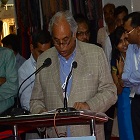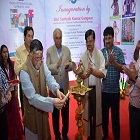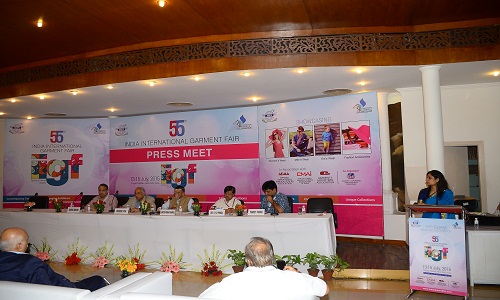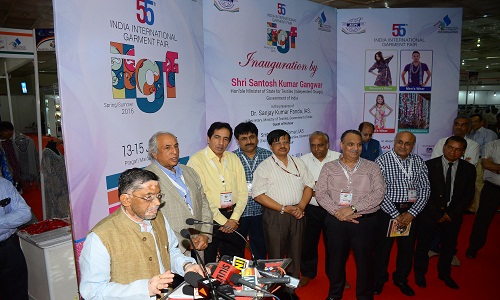FW
Basant Kumar Birla has offered to get himself reappointed to the boards of at least three group companies, Century Textile, Century Enka and Jay Shree Tea. Earlier the market was abuzz with the impending retirement of the nonagenarian. It was believed his grandson Kumar Mangalam Birla would formally take over a major part of the empire.
This rumor even led to rallies in shares of the Century Textile and Industries, which appreciated 60 per cent from February end to middle of April. But with B K Birla deciding to celebrate his 95th birthday as an active industrialist, this has created a situation in Century Textile, where three generation of the family, KM Birla, his mother Rajashree Birla and grandfather BK Birla are serving on its board.
There is a positive aspect of the promoter family hogging the board as it leads to faster decision making. But there is also the issue of corporate governance as the new generation owner members would be in two minds taking any decision that would upset the senior members of the family present in the board. There is also a view that with BK Birla touching 95 years, his presence would be inconsequential to the overall operation and decision making of the board.
This is the fourth edition of B2B show, Denim and Jeans will be held in Bangladesh on October 7 and 8, 2015. The theme of the show is Denim Playground. The first B2B denim supply chain show was held in Bangladesh in March 2014. The last edition saw over 400 companies visiting the show including some of the most reputed retailers, factories, buying houses , brands like Tom Tailor , Carrefour , Uniqlo, Wal Mart, Debenhams , Levi Strauss, Perry Ellis VF etc. The latest edition promises to be larger, bring in a lot more reputed suppliers and buyers from across the world.
The idea behind the show is to provide a platform to the denim industry in the region where the entire supply chain players from mills, fiber and chemical suppliers, garment manufacturers, retailers, buying houses, brands can get together and help in further development of the industry. One of the main themes driving the show is eco sustainability. Besides exhibitors showcasing green products, the show design will revolve around this theme.
Bangladesh is a huge center for denim production. It exports about 200 million pieces of denim apparel to the US and EU alone. It is the second largest exporter of denim after China. Bangladesh enjoys duty free status to the EU for garment exports and also to some other countries including India.
Overall, cotton sowing in India may be the same or a little lower last year. Late onset of monsoon last year had delayed sowing across key states such as Maharashtra, Gujarat, Telangana and Andhra Pradesh, where sowing traditionally takes place in late June and early July. Steady rain through June and fears of a dry spell after the first week of July appears to have prompted more planting since the crop can thrive even with low moisture. Most states, except some northern ones and Tamil Nadu and Karnataka, have reported higher cotton acreage.
Farmers are planting more cotton due to chances of low rainfall even if returns are low. In Telangana, for example, there’s been no constant rain for the last 15 days and sowing is up five to ten per cent. In Maharashtra, the country’s largest cotton producer, almost three million hectares have been covered, from 8,35,000 hectares last year.
Cotton prices were low last year. Prices shot up marginally in the beginning of July on a spurt in export demand but have since stabilised. In future prices are likely to be pressured, with China unlikely to import Indian cotton in the near future and surplus domestic stock.
Taipei is getting ready to host ‘ICAC International Seminar 2015’, along with the Taipei Innovative Textile Application Show (TITAS) on October 20. Both are being organised by TTF. The theme of the seminar is: ‘The Development of Textile & Apparel Industry under the Regional Economic Integration’. Julia K Hughes, President of the United States Fashion Industry Association (USFIA), is the keynote speaker. She will share her perspective on regional economic integration on worldwide manufacturing and trade of textile and apparel industry. When countries enter regional agreements, they aim to reduce trade barriers speedily than can be achieved under the auspices of the WTO.
The theme of the first session is: ‘The Development of the Innovative Materials’. Prominent speakers liken Dhyana van der Pols, Head of Textile Innovation and Manufacturing at the World Federation of the Sporting Goods Industry (WFGSI), Andy Chen, Director of the Regional Sustainable Manufacturing Chemistry, Nike Sustainable MFG Excellence, etc. will share their views on aspects of brands and garment supply chains.
The second session’s theme is: ‘Adaptation of the Textile Industry to Trans-Pacific Partnership (TPP)’. Speakers such as Mike Todaro, Managing Director of Americas Apparel Producer’s Network (AAP Network), Mark Green, Executive Vice President, Global Supply Chain (PVH), and others will share their views on trade liberalisation and the current conditions through in-depth discussion and interaction with the participants.
Many readymade garment factory workers have not been paid their wages within the promised deadline, which has already been crossed. At a meeting with the state minister for labour and employment, M Mujibul Haque, leaders of Bangladesh Garment Manufacturers and Exporters Association (BGMEA) and the Bangladesh Knitwear Manufactures and Exporters Association (BKMEA) committed that factory authorities would pay workers’ wages within July 10 and festival allowances by July 14 before Eid.
Workers’ rights groups, however, stated that 20 per cent of RMG factory owners across the country did not pay wages to their workers as committed. The BGMEA, though, said that no complaint was received regarding the wage issue.
The president of the National Garment Workers Federation (NGWF), Amirul Haque Amin, has said that several factory owners were yet to pay wages and festival allowances. General secretary of the Garment Workers’ Trade Union Centre, KM Ruhul Amin stated, 25 per cent of factories had not yet paid their workers. He further mentioned that uncertainty over wages was seen in some factories, as authorities were yet to clear outstanding wages for the month of May.
Bangladesh Garment Workers Employees League president (BGWEL), Sirajul Islam Roni, on the other hand, said that more than 30 per cent of factories did not pay wages to their workers in time to meet their commitment. The BGMEA vice president Shahidullah Azim, however, claimed that most of the factory owners paid wages in time barring a few.
American & Efird, (A&E), a leading textile manufacturer from the US has released its latest sustainability report. The report stated there has been a significant progress in areas of water use, energy and waste management and reduction.
The company mentioned that in 2014, it produced 1.1 million kg of thread using recycled water from the industry's first zero liquid discharge system in the Perundurai, India dyehouse. To benchmark its environmental performance, A&E also uses the Higg Index of the Sustainable Apparel Coalition.
While adhering to American Apparel and Footwear Association (AAFA) standards, A&E strictly follows the guidelines stated by AAFA. To create its 2014-2015 Sustainability Report, A&E evaluated all of its global yarn spinning and dyeing and finishing facilities. The report also mentioned categories that were measured: global carbon footprint, water conservation, energy conservation, and recycling and waste reduction.
John Eapen, VP, environmental, health & safety/sustainability, A&E believes that sustainability and corporate social responsibility are the way forward and corporations should be committed to these initiatives. This would help in not just the success and survival of companies but also future generations.

RMG exports from India were worth $1,568.5 million in May 2015 an increase of 5.1 per cent against the corresponding month of May 2014 which was $1,492.4 million. India’s RMG exports to world for the period of April-May 2015-16 (cumulative) was $3,012.7 million, up 7 per cent compared to the same period of previous financial year. During April-May 2014-15, India’s apparel exports were to the tune of $ 2814.4 million. Export in dollar terms for April-March of the FY 2014-15 increased by 12.3 per cent over the same period of previous fiscal and reached to $ 16,846 million.
Exports bullish but lack of incentives mar growth
Speaking about the exports growth, Virender Uppal, Chairman of the Apparel Export Promotion Council (AEPC) said, apparel exports have registered a growth of 7 per cent, as compared to the same period of last year. “As the incentive in FTP 2015-2019 has been withdrawn it had a dampening effect on overall trade. Apparel exporters work on very thin margins, therefore, the incentives were a big help. In the FTP 2015-19 announcements, garment export sector got 2 per cent reward only on 239 HS lines out of 398 lines. The service sector got 5 per cent scrip under Service Sector India Scheme.”
Further the chairman informed that, no Merchandise Exports from India Scheme (MEIS) has been announced to Latin America, West Asia, CIS Countries, Africa and Oceania countries. “Global apparel exports were $473.6 billion in 2014, out of which India exported only $16.5 billion, while China exported around $173.5 billion, almost 11 times that of India and Bangladesh exported $28.1 billion almost double of India. India is way behind China, Bangladesh and Vietnam. Cambodia is growing more than two times faster to push it further behind. The need of the time is to look into the situation and provide policy support along with the exports incentives on urgent basis,” he added.
For the financial year 2015-16, the Ministry of Textiles has set a target of $18.7 billion, which is 11 per cent higher than last year’s actual achievement. “We could achieve 97.66 per cent of the target in the last FY 2014-15 registering a growth of 12.3 per cent. This was possible because of the government support/incentives based on the Chapter 3 provisions of FTP along with the duty drawback, TUFs, EPCG, interest subvention and other schemes of the government. Achieving the target of $18.7 billion in 2015-16, would be a very ambitious task and difficult to achieve, unless, the recommendations of the AEPC are accepted and implemented in the year 2015-16.” Giving an optimist account of export projections, chairman AEPC stated that, India has achieved a CAGR of 8.1 per cent during the post quota period (2005-14), if we apply this CAGR of 8.1 per cent, garment export projections for each of the years up to 2019-2020 can touch $24.9 billion.
AEPC seeks incentives to boost exports
Non-traditional markets which used to constitute 35-40 per cent share in India’s garment exports are poised to receive a setback due to the withdrawal of Chapter 3 benefits. Markets like Latin America, Africa and Central Asia have been excluded from the list. The EU constitutes 41per cent of India’s RMG exports but conditions in major markets like EU continues to be subdued. Further, India is facing duty disadvantage of 9.6 per cent compared to competing countries like Bangladesh and Pakistan who have zero duty access under LDC/GSP+ status of EU GSP Scheme.
The US constitutes 21.7 per cent of India’s RMG exports and market condition over there is still under gradual recovery. Buyers are asking 25 per cent lower price to place orders as inflation is going down in importing countries and rivals are offering products at lower costs.
Uppal requested the government to look into demands of AEPC to boost exports, which include, inclusion of 2 per cent fabric within 5 per cent overall entitlement under EPC for improving fabric base, announcement of 3 per cent interest subvention scheme to partially mitigate high cost of lending, which is hovering around 11-12 per cent interest rates, as compared to 4-6 per cent in competing countries, till such time, separate chapter for pre and post shipment export credit at fixed rate of 7 per cent interest, as done in the past, is announced by the government, duty credit scrip at 5 per cent to major markets like US, EU, Canada, Mexico, Australia, Switzerland, Russian Federation, Ireland, Brazil, China, Republic of Korea, Norway, Chile, Turkey, Saudi Arabia, South Africa and Malaysia, simplification in landing certificates as proposed by AEPC and even for one star exporter should be considered, actual implementation of 24 x 7 clearances of import and export must be ensured by customs at all airports and shipping ports.
He further added that the government has not given any indication about the finalisation of India-EU FTA, CEPA with Canada, which needs to be implemented on an urgent basis so as to mitigate the duty disadvantage suffered by India vis-a-vis our competitors like Bangladesh, Cambodia, Vietnam and Pakistan in the major markets and upward revision of duty drawback rate for RMG industry.
www.aepcindia.com

The 55th edition of India International Garment Fair 2015 (IIGF) was inaugurated by Santosh Kumar Gangwar, Minister of State for Textiles at the Pragati Maidan in New Delhi today. In his inaugural speech, Gangwar highlighted the need to strengthen apparel exports. A three day annual fair is being held till July 15, 2015.
Also present at the inauguration were Sanjay Kumar Panda, Secretary Textiles, Sunaina Tomar, JS Exports, Virender Uppal, Chairman AEPC, Sudhir Sekhri, Chairman (EP), Puneet Kumar, Secretary General AEPC, Executive Committee Members, among others.
Emphasis on inclusive growth
In his speech Gangwar said “Given its employment and export intensity, apparel industry plays a significant role in realising the vision of ‘Make in India’. The new government under the leadership of Prime Minister Narendra Modi has emphasised on the economic vision based on boosting manufacturing, growing exports and generating more and more employment. The idea is to embark on the path of inclusive and participatory growth,” he said.
Appreciating the efforts of fair organisers in bringing together a large number of exporters to the event, while attracting reputed overseas buyers, Gangwar said his ministry would continue to provide support for organising IIGF, as this industry provides large employment and earns precious foreign exchange for the country.
Panda pointed out that the 55th IIGF is the largest garment show in South Asia, covering apparel and fashion accessories, encompassing a vast exhibition area of around 17,256 sq. mts. The objective is to showcase latest garment and fashion accessory trends. “This sector being the highest employment provider in the manufacturing sector has a much bigger role and responsibility. India has the significant advantage of a young population offering huge potential for a demographic dividend by getting gainful employment in this sector with just three months of training,” he added.
Rise in exhibitors and buyers
With more than 400 exhibitors this edition of IIGF has seen a remarkable increase in the number exhibitors from several states such as Rajasthan, Tamil Nadu, Maharashtra, West Bengal, etc. “The 55th IIGF has attracted 305 buyers from across globe, of which 202 are from the traditional markets and 103 are from non-traditional markets. 2,921 buyers have already registered for the fair. This is an indication that buyers have started showing faith and see India as a safe and compliant destination for sourcing garments,” informed Uppal.
IIGF is being organised by AEPC in association with AEMA, GEA and CMAI as partner associations and GEAR as the co-organisers. Buyers from across EU, Asia, USA, Brazil, UK,US, etc, are participating. Big buyers including One Jeanswear Group from USA, Grupo Hotelshops, Mexico, PJSC Melon Fashion Group from Russia, The Original Factory Shop from UK, Cortefiel from Spain, among others are all there.
The overall outlook for cotton textile sector for 2015-16 is stable. Stable profit margins in the cotton yarn segment, range-bound prices, favorable domestic and export demand for downstream fabrics and apparel are expected to help the sector. However, the outlook for cotton yarn exporters is negative due to a slowdown in demand for yarn, particularly from China, leading to softer yarn realisations and lower capacity utilisation.
Cotton spinners’ EBITDA margins, which were hurt by inventory valuation losses in 2014-15, could recover in 2015-16 in the range of 10 to 13 per cent. But it would still remain lower than the 2013-14 levels when spinning mills benefited from exceptionally high Chinese demand. Oversupply of cotton and cotton yarn over 2015-16 coupled with lower average crude prices could also cause the price of polyester fibers to decline.
Although India has a small share in the global textile trade, it is well positioned to gain from weak input prices and growing demand for apparels and made-ups. Growth of garment manufacturers might remain largely volume led while realisations could continue to exhibit commodity and competitive pricing pressure.
The US is keen on bringing to life the Trans-Pacific Partnership (TPP), the 12-nation free trade plan. The countries with which the US is negotiating the TPP are Australia, Brunei, Canada, Chile, Japan, Malaysia, Mexico, New Zealand, Peru, Singapore and Vietnam. Of the countries currently in TPP negotiations, Vietnam is most supportive of the free trade plan. US-Vietnam trade has had an average annual growth of 20 per cent over the past three years.
As the US and Vietnam join hands in pushing the trade partnership, China’s export industries, the textile sector in particular, could be affected. In the TPP negotiations, the US insists on yarn forward principle applied to the textile trade, which requires that only fabric produced from yarn made by a TPP country will qualify for duty free status. In line with the yarn forward principle, the US might ask Vietnam to reduce textile imports from China.
The US is the second largest export market for Vietnamese garments and shoes. On the other hand, Vietnam is not a major producer of textiles, with only 20 per cent of the market supplied by domestic manufacturers. It imports an average of 4.7 billion dollars of textiles from China every year.














